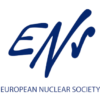Westinghouse Supplies Bulgaria with First VVER-1000 Fuel Reload
Westinghouse Electric Company (ENS Corporate Member) delivered the first reload of VVER-1000 fuel assemblies to the Kozloduy Nuclear Power Plant (KNPP), marking a key fuel diversification milestone in Bulgaria.
The loading of the new fuel into Unit 5 was celebrated on 29th May, at an event attended by Bulgarian Prime Minister Dimitar Glavchev, Minister of Energy Vladimir Malinov and the US Ambassador to Bulgaria Kenneth Merten.
Westinghouse and KNPP signed a 10-year supply contract in December 2022. Today, Kozloduy-5 uses the RWFA VVER-1000 fuel design, which demonstrated excellent, safe operational performance in several Ukrainian nuclear plants.
The first delivery follows a thorough and extensive fuel licensing process started 3 years ago, a joint effort between KNPP and Westinghouse, supported by the Bulgarian engineering company ENPRO Consult, which conducted safety analysis and fuel licensing activities.
Kozloduy is the only NPP in Bulgaria and the largest in the region. Units 5 and 6 have a total installed capacity of 2GW, supplying more than one-third of the country’s electricity (32.5% in 2022). These units have been upgraded and modernized to extend their operational lives by 30 years each.
Read the full Westinghouse Press Release.
In recent years, Westinghouse renewed long-term cooperation and signed new agreements with several Eastern Europe countries, like Hungary, Slovakia and Ukraine.
Moreover, the company is leading a consortium selected by the European Union (EU) to develop and deliver a secure nuclear fuel supply to Russian-designed pressurized water reactors VVER, operating in Eastern Europe and Ukraine.
The APIS project (Accelerated Program for Implementation of Secure VVER fuel Supply) is part of the EU’s Horizon Europe programme for research and innovation, with a contribution of €10 million from the Euratom Work Programme 2023-2025.
The importance of the diversification of nuclear fuel suppliers has been often underlined by the Euratom Supply Agency (ENS Member) which reminded us that diversification is paramount to prevent excessive dependence of EU users on any single third-country supplier and to achieve the security of supply of nuclear fuels in the medium and long term.
According to ESA, around 10% of the EU gross nuclear electricity capacity is fully dependent on the supply of Russian fuel. These concern operators in Bulgaria, Czech Republic, Hungary and Slovakia and one operator (out of two) in Finland.
The importance of long-term strategies, investments, and further efforts towards diversification of suppliers to ensure nuclear fuel cycle security is a topic that ENS, together with Urenco (ENS Corporate Member), Euratom Supply Agency and Orano, discussed last October at the event “Fuelling Europe’s Future – Uranium Supply, Conversion and Enrichment“, which took place in Brussels.
Read more about the event in our follow-up newsletter.
